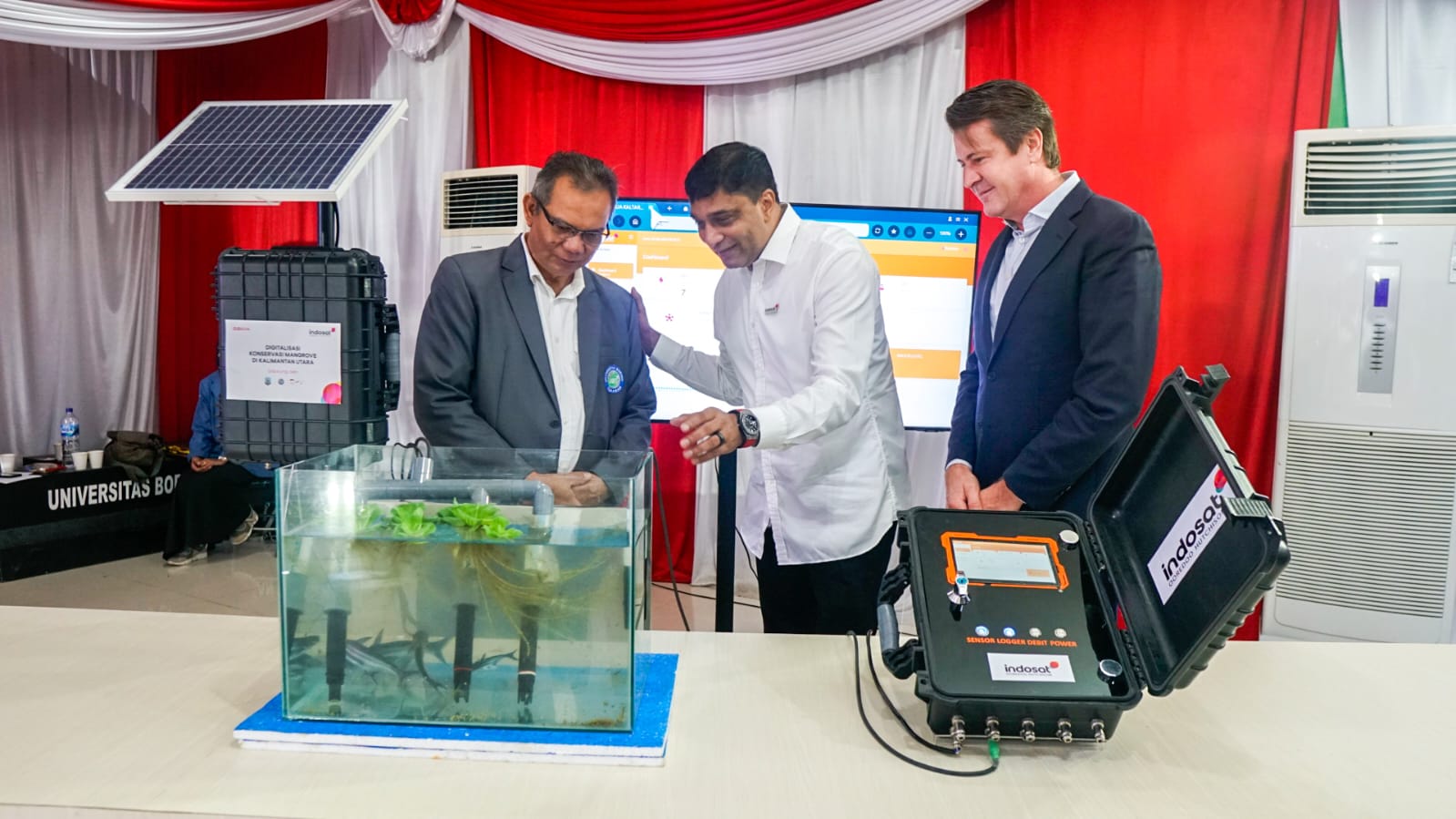
Indosat Ooredoo Hutchison (Indosat) has partnered with the Global System for Mobile Communication Association (GSMA) in an effort to increase Indonesia’s environmental and economic resilience through the development of mobile-based mitigation. This collaboration is one of the initiatives to address the impact of global climate change, as embodied in the “Digitalization of Mangrove Conservation” program in North Kalimantan. This sustainable program is also supported by the German Federal Ministry for Economic Cooperation and Development (BMZ), Deutsche Gesellschaft für Internationale Zusammenarbeit (GIZ), Borneo Tarakan University, the North Kalimantan Provincial Government, and West Sebatik Regency Government.
Vikram Sinha, President Director and CEO of Indosat Ooredoo Hutchison, stated that the issue of global climate change has become a global concern and has significant impact on the sustainability of ecosystems. “The collaboration between Indosat and GSMA is a tangible step in addressing climate change issues through the utilization of digital technology. This joint effort, which is in line with the Indonesian Government’s commitment, will increase environmental resilience and accelerate economic growth not only for the surrounding community, but also for the nation’s economic growth,” he said.
Julian Gorman, Head of Asia Pacific Global System Mobile Communications Association (GSMA), added that GSMA strengthens its commitment to addressing global climate challenges through its support for digitalization programs to address negative impacts and extreme climate. “The collaboration between Indosat and GSMA Mobile Innovation Hub is evidence of our commitment to the environment on how cellular can make a significant contribution in connecting communities through digital solutions. Moreover, mangrove conservation is a global need in many coastal communities. This strategic partnership will surely bring productivity and environmental resilience in the future,” he explained.
The Digitalization of Mangrove Conservation programme is a continuation of the Memorandum of Understanding (MoU) signed in Barcelona in March 2023, which will be carried out in two forms of activities. The first is the mapping of marine and coastal areas using Open-source & Geospatial Mapping in coastal and marine areas of North Kalimantan, especially in Setabu Village, West Sebatik District. This activity will involve residents and community figures using the Qfiled application that can be updated periodically.
“With the Qfield application, Indosat, together with GSMA, BMZ, and GIZ, will also provide mapping training to map coastal and beach areas and produce digital maps for further activities. The success of this activity can be used to socialize to other business actors and to protect mangroves in the long run,” said Sinha.
The second activity is to introduce digital solutions based on the Internet of Things to local shrimp farmers to monitor water content in ponds, especially those adjacent to mangrove growing areas. Its aim is to increase the productivity of small ponds and to avoid the threat of mangrove logging by large shrimp farmers.
“Digitalization will reduce the impact on natural disasters and maximize various untapped potentials to improve the economy of the surrounding community. Indosat will continue to position itself as a key collaborator to empower Indonesia,” concluded Vikram.



